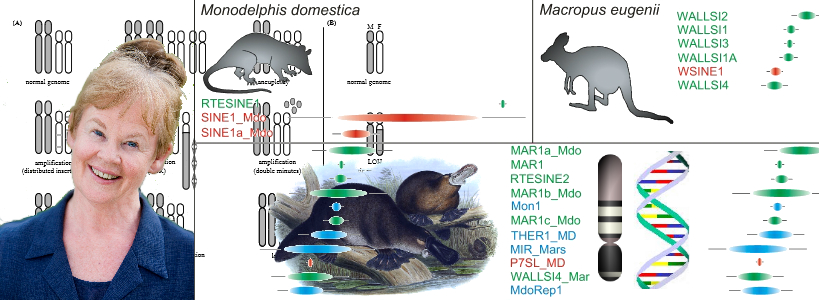Weird Animals & Sex: Evolution of a Science – and a Scientist
A Joint Lecture with the Royal Historical Society of Victoria
 Professor Jenny Marshall Graves AO FAA
Professor Jenny Marshall Graves AO FAA
Distinguished Professor, Professor Emeritus, ANU; Thinker-in-Residence, University of Canberra; Professorial Fellow, University of Melbourne; Professor of Genetics, La Trobe Institute for Molecular Science
Professor Jenny Graves’ interest in sex and sex chromosomes started in the 1960s, when we could only look at sex chromosomes in the microscope. A big change came over the field with the fiercely competitive search for the gene on the Y that makes a baby male – enter molecular biology. In one shift after another, the field of sex determination embraced the molecular and physiological genetics of the day, then swept into clinical genetics, population and conservation genetics, even the history of human migrations, and inevitably into evolution.
How animals develop as male or female has been a subject of great interest and controversy for thousands of years, and how sex determination evolved has been the subject of intense theorizing for the last hundred. With the introduction of new molecular technology to identify genes that determine sex, trace the evolutionary origin of these genes and the sex chromosomes on which they lie, matters have changed dramatically.
Professor Graves counts herself lucky to be a part of this field as it transitioned from “mathematics and arm-waving” into a breathtaking journey through every kind of genetics. There have been surprises at every turn, and many of these have come from comparing the way genes and chromosomes control sex in Australian animals such as kangaroos and platypuses – and now dragon lizards show us that while sex can be remarkably flexible, it may yet be at the mercy of global warming.





